The Amazon – and our lives – are going up in smoke. It has been many years since there have been as many hotspots in the forest during the month of October. The world’s largest watershed doesn’t have enough water to drink. The air in the planet’s largest rainforest has become hard to breathe. The city of Altamira, where SUMAÚMA is based, celebrated its 112th anniversary on Monday (Nov. 6), wrapped in smoke from fires. That night, the first rain in weeks set the entire forest singing, the frogs and howler monkeys leading the symphonies. When the surviving earth and trees awoke wet the next day, the parrots were flying overhead in noisy flocks, coming from every direction. They know as well as we do that the relief brought by the rain was only momentary, a burst of illusion. Never has the certainty of bearing witness to the end of the world been more apparent for so many as in this extreme drought of 2023, with the thick smoke blocking out any chance of seeing any type of horizon. And that is why lately, on the front lines of this war waged against nature, many people are finding it hard to get out of bed – or out of the hammock – for another day of the acrid smell of fire reeking from their clothes and skin. It is the smell of crime – and it is seeping into all of us. We reek of crime.
That there is a lack of water and clean air in a forest that crosses the larger part of a continent, a forest that took millions of years to create, destroyed in just a few decades, is only slightly less preposterous than the fact that a species, humans, has changed the climate and the shape of our home-planet in just 250 years. But it happened. And did anyone stop the destruction? They did not. Those who carry out the crime do not stop – and they are not stopped by others.
While deforestation has fallen, fires are on the rise, despite every effort by Marina Silva, the Minister of Environment and Climate Change, and by public agents at environmental protection and oversight agencies – which are fewer in number and have less resources than criminal militias. What is happening today is the result of a government project extending over the business-military dictatorship (1964-1985) and into the country’s redemocratization, treating the forest as a body to violate and exploit – and treating its peoples as non-people. What is happening today is the result of four years of Jair Bolsonaro’s right-wing extremism, encouraging and supporting forest criminals, some of whom are local elites and some of whom are elites in the Southeast and, in the case of mining, spread around the world. Some of them lead transnational corporations.
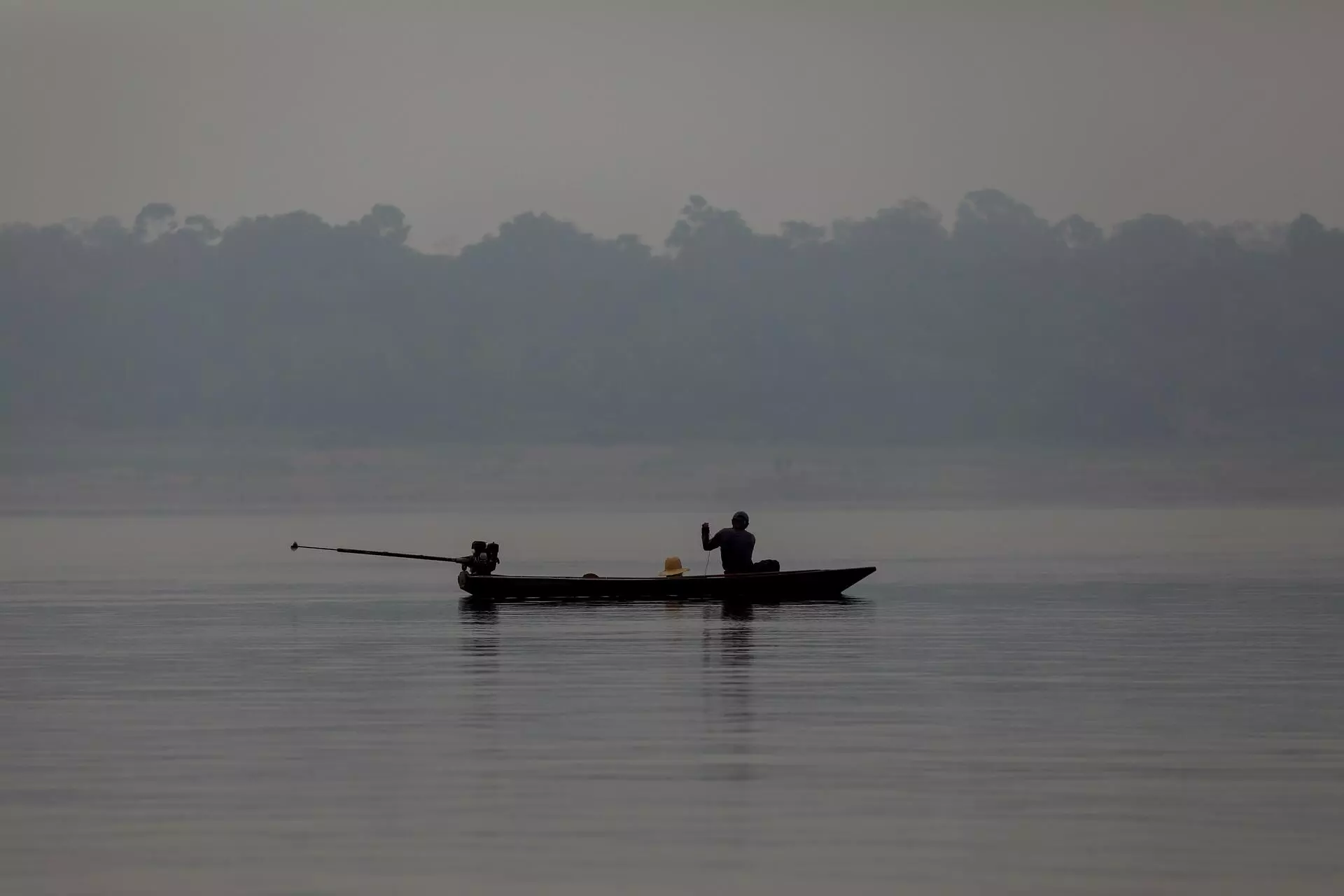
Smoke from illegal fires burning in the forest affects the residents of the municipality of Beruri, in Amazonas. The drought and the government’s indifference have led to tragedy in the region. Photo: Michael Dantas/SUMAÚMA
Yet it is also reality that Marina Silva is facing strong internal opposition within the administration, which is becoming distorted by pressure from a mostly predatory Congress; that the historical achievement of Indigenous women leading the Ministry of Indigenous Peoples and the National Foundation of Indigenous Peoples is criticised for slow making progress on demarcating Indigenous territories; and that the Luiz Inácio Lula da Silva administration is sending mixed signals on the Amazon and on other nature enclaves, especially the Cerrado.
What we feel as inhabitants of a forest that is increasingly closer to the point of no return – in this year, which is worse than our worst nightmares, in this year of accelerated ruin – is proven by science: the climate crisis may be quickening – and the threat to the existence of our own and other species is greater than science’s gloomiest projections.
In “The 2023 State of the Climate Report: Entering Uncharted Territory,” which was authored by researchers from several countries, in a much more eloquent tone than usual scientists state that: “Life on planet Earth is under siege. We are now in an uncharted territory. For several decades, scientists have consistently warned of a future marked by extreme climatic conditions because of escalating global temperatures caused by ongoing human activities that release harmful greenhouse gasses into the atmosphere. Unfortunately, time is up. We are seeing the manifestation of those predictions as an alarming and unprecedented succession of climate records are broken, causing profoundly distressing scenes of suffering to unfold. We are entering an unfamiliar domain regarding our climate crisis, a situation no one has ever witnessed firsthand in the history of humanity.”
They honestly take stock of their own fear: “As scientists, we are increasingly being asked to tell the public the truth about the crises we face in simple and direct terms. The truth is that we are shocked by the ferocity of the extreme weather events in 2023. We are afraid of the uncharted territory that we have now entered. Conditions are going to get very distressing and potentially unmanageable for large regions of the world, with the 2.6°C warming expected over the course of the century. (…) We warn of potential collapse of natural and socioeconomic systems in such a world where we will face unbearable heat, frequent extreme weather events, food and fresh water shortages, rising seas, more emerging diseases, and increased social unrest and geopolitical conflict. Massive suffering due to climate change is already here, and we have now exceeded many safe and just Earth system boundaries, imperiling stability and life-support systems.”
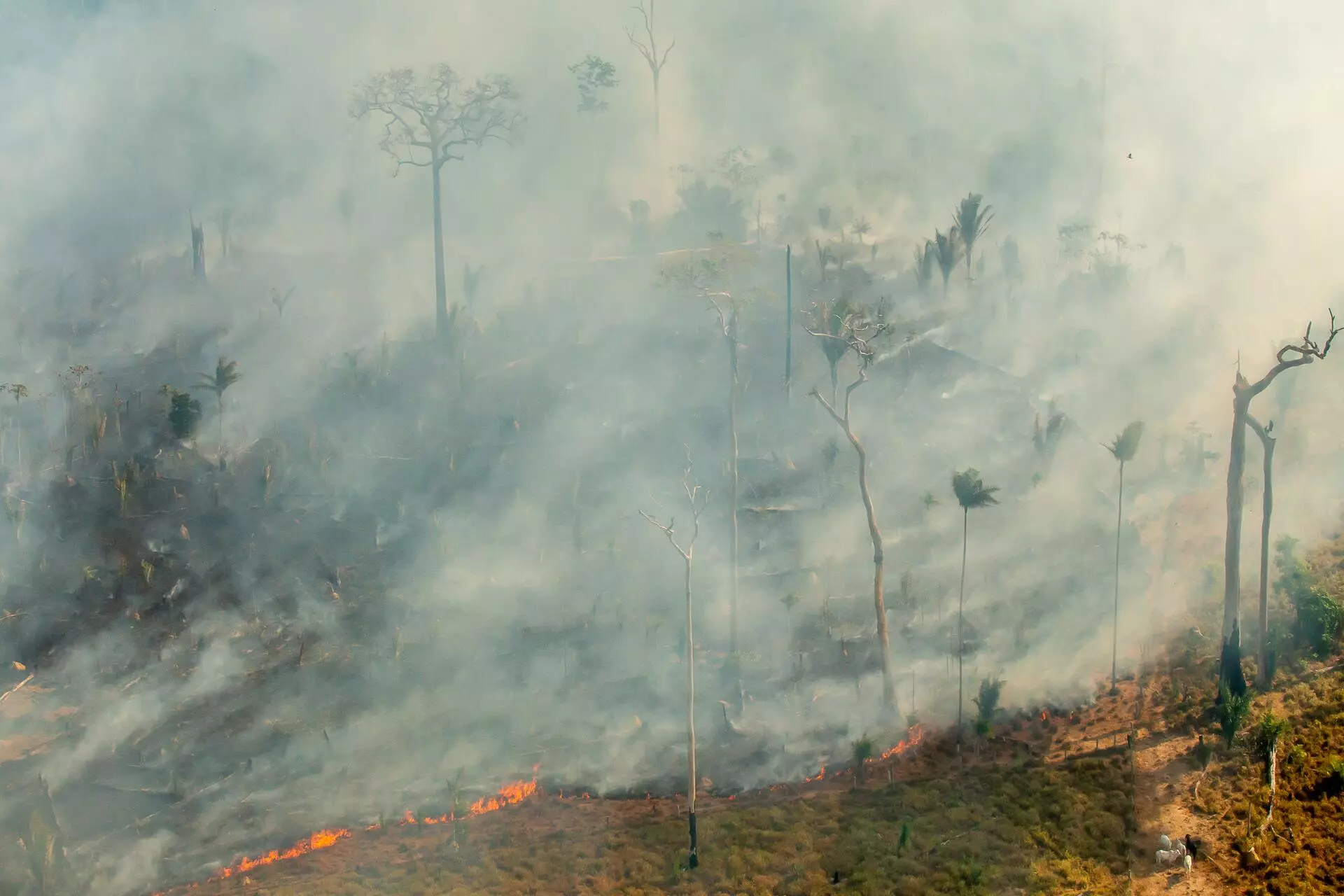
In the municipality of Senador José Porfírio, in the state of Pará, landgrabbers set fire to a part of the Ituna/Itatá Indigenous Territory during an operation by Brazil’s environment agency to disassemble illegal farms. Photo: Lela Beltrão/SUMAÚMA
They end with a call to fight, because in this context it’s fight or die: “This is our moment to make a profound difference for all life on Earth, and we must embrace it with unwavering courage and determination to create a legacy of change that will stand the test of time.” Part of the problem, however, is that capitalism destroyed the human survival instinct and the question that everyone should be asking themselves and others – how can I make a difference? – doesn’t even cross most people’s minds.
The connection between the way of life and the beyond-dramatic situation of a planet in climate collapse is not complete. Not even the material hardships most experience to keep living – and the progressive decline in mental health – are capable of waking people up to the fact that transnational corporations continue to destroy biomes like the Amazon and the Cerrado, that most elected members of Congress do not serve their electors, but rather these same corporations, large landholders, and the congressional members’ own interests. Or, to the contrary, perhaps material hardships and a decline in mental health help to alienate the causes that make life worse and worse and cause the extreme events running across Brazil and the planet at an unprecedented strength in 2023 that nothing indicates will diminish in the next year – quite the opposite.
The middle and wealthier classes must hear that yes, although big changes can only come from public policies and those largely responsible for destroying nature are billionaires and super-millionaires, it does not mean that those in these classes are exempt from making radical changes to their lives, individually and as families. Failing to change means choosing death. Even if death comes to the poorest first – and for this reason alone these changes should already be inescapable.
At this moment we are looking at cyclones in Brazil’s South region and extreme drought in the Amazon, making it impossible not to look at the people being affected first and foremost by extreme events. Those who have lost homes, those who have died are precisely those people who have contributed the least to the climate crisis. This is what the concept of “climate justice” is about – and the United Nations (UN) concept of “Climate Apartheid” is also part of this reality.
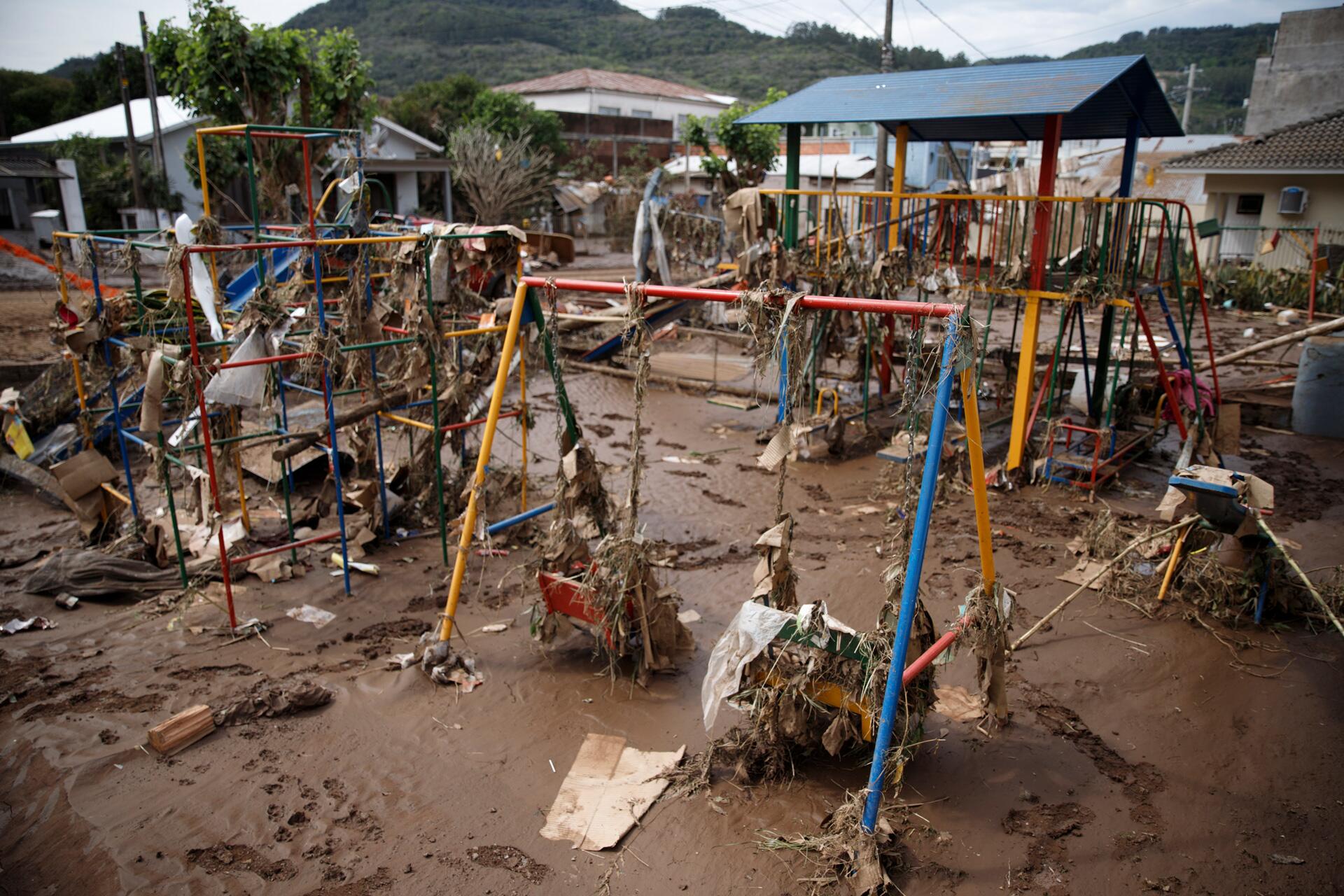
The destruction of Muçum, a municipality in the state of Rio Grande do Sul, one of the hardest hit by the cyclone and by heavy rains in the region. Photo: Jeff Botega
On Wednesday (Nov. 8), the Whiteness Observatory, based in Rio de Janeiro, pointed in this direction when it held a seminar on the Climate Emergency: A Heritage of Whiteness. “Current heat waves, cyclones, and droughts are responses to years of exploitation of a chain of extraction led mostly by white people,” the Observatory said when announcing the event. “Whiteness maintains a series of material and symbolic privileges, even in the face of the emergency in which the planet finds itself, while the people who have least impacted the environment are the ones who suffer the most: the black, Indigenous, Quilombola, Ribeirinho populations. The role of whiteness in eternalizing climate inequality is a point that has yet to be widely explored in the debate.”
We need to talk much more about Climate Apartheid – and not just between human people, but also between human and more-than-human people, the case of animals, plants, and fungi. We need to talk much more about environmental racism and climate justice. This is covered in reporting from Amazonian journalists Rosiene Carvalho and Michael Dantas. In a painful narrative, the residents of the community of Arumã, in the state of Amazonas, tell the sequence of events in which the village was swallowed by an extreme drought and official indifference – taking five people’s lives with it. I share a paragraph from this true story here, which everyone has an ethical duty to know about:
When the river’s violent movement slowed, Eliezer heard a woman’s voice yelling: “My son!” It was Ketla, clinging to a piece of wood. “We asked if she wanted to go to the shore and she said: ‘I want you to find my son.’ That thing had taken her son from her hands. Her daughter had disappeared too. There was nothing we could do and we were desperate to find out about our family, if they had died too,” he recalls. Ketla only got out of the river with the help of Ediel’s father after her son floated nearby where his mother was waiting for him. Two days later, firefighters found the body of her 16-year-old daughter. Kezia and Allyson were buried in the village cemetery.
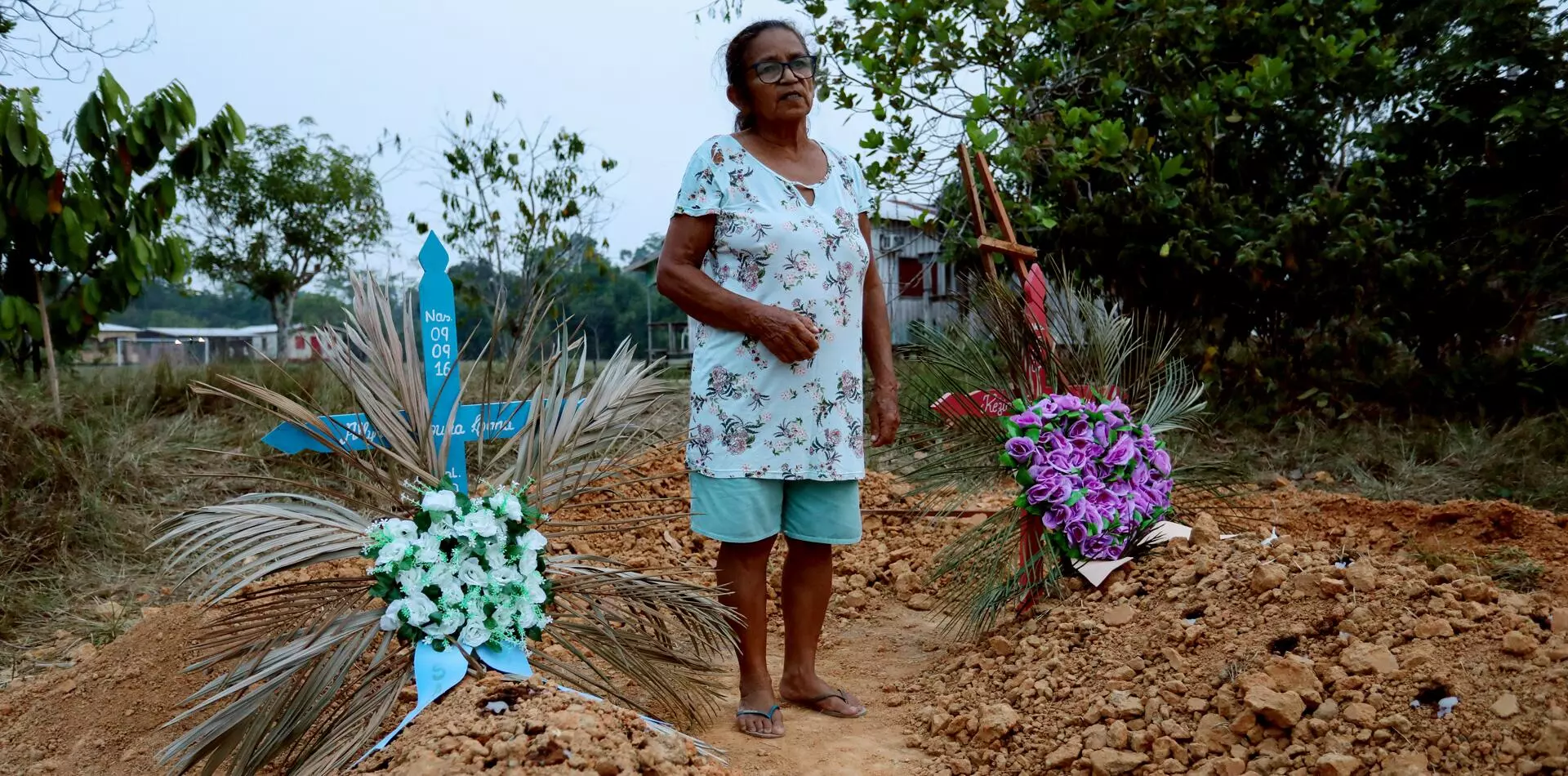
Maria Perpétua Nazaré Laborda visits the cemetery in Arumã where her grandchildren are buried, Allyson, 7, and Kézia, 16, victims of the landslide. Photo: Michael Dantas/SUMAÚMA
While the most vulnerable are losing children because the most wealthy are consuming the planet, while rulers and politicians are serving major corporations instead of the public, and while scientific warnings are reaching peak severity, those gobbling up goods continue to march toward the abyss, taking us along with them. In Brazil, President Lula is in favor of opening up another front in oil exploration in the Amazon, the COP-28 climate change conference has yet to begin and a shadow has already been cast over it by a disbelief in significant advances, and the world is witnessing another devastating inter-human war. I can only beg a useless – very useless – pardon of the animal-people, plant-people, and fungi-people who are at this moment burning to death, many in excruciating pain, in the forest on fire all around me. They did not deserve a scourge like humankind.
Fact check: Plínio Lopes
Proofreader (Portuguese): Valquiria Della Pozza
Spanish translation: Meritxell Almarza
English translation: Sarah J. Johnson
Visual editing: Lela Beltrão
Editorial workflow, copy editing, and layout: Viviane Zandonadi
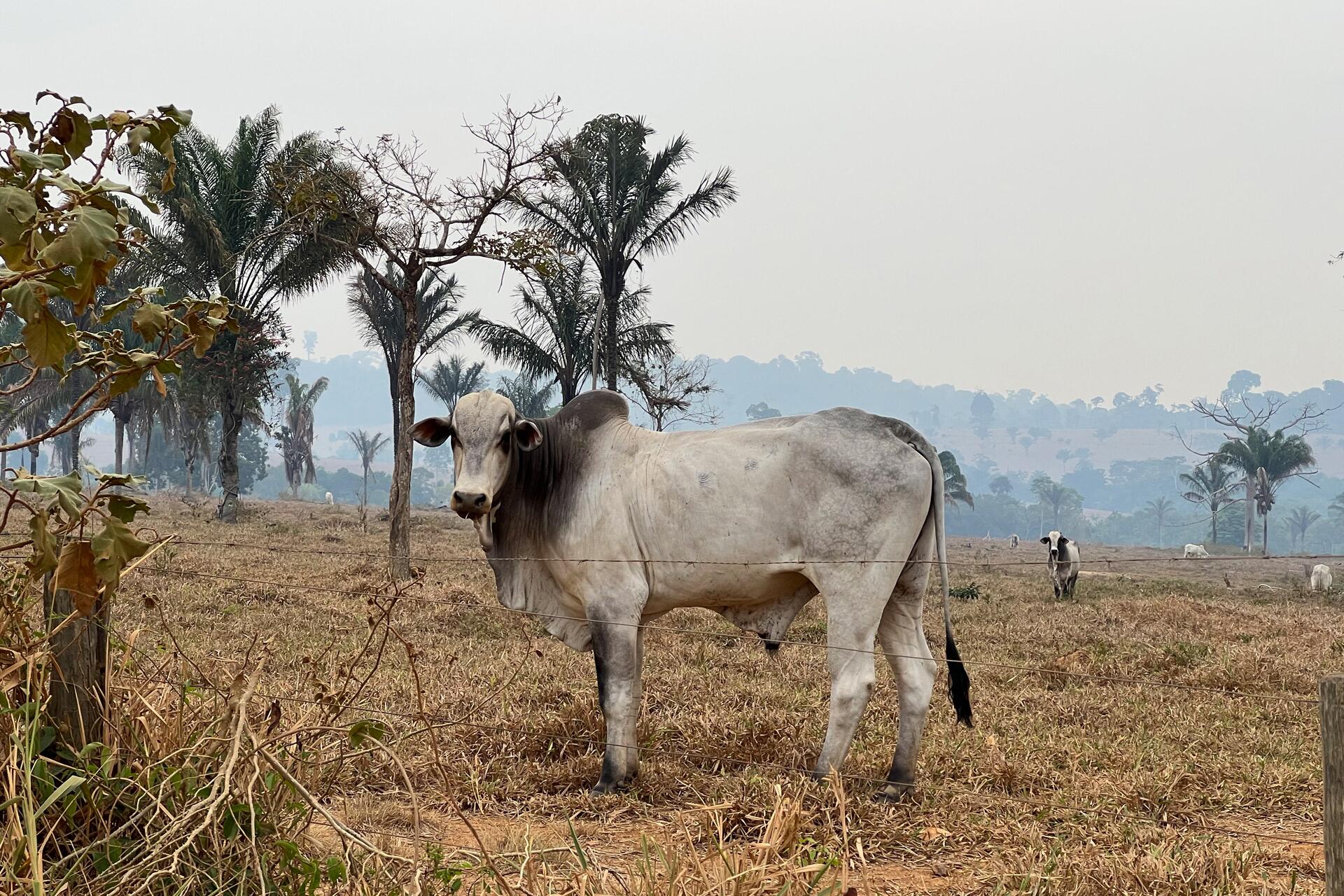
Altamira, where SUMAÚMA is based, celebrated its 112th anniversary on Monday (Nov. 6), wrapped in smoke from fires. That night, the first rain in weeks brought momentary relief from the certainty that we are witnessing the world end. Photo: Jonathan Watts





